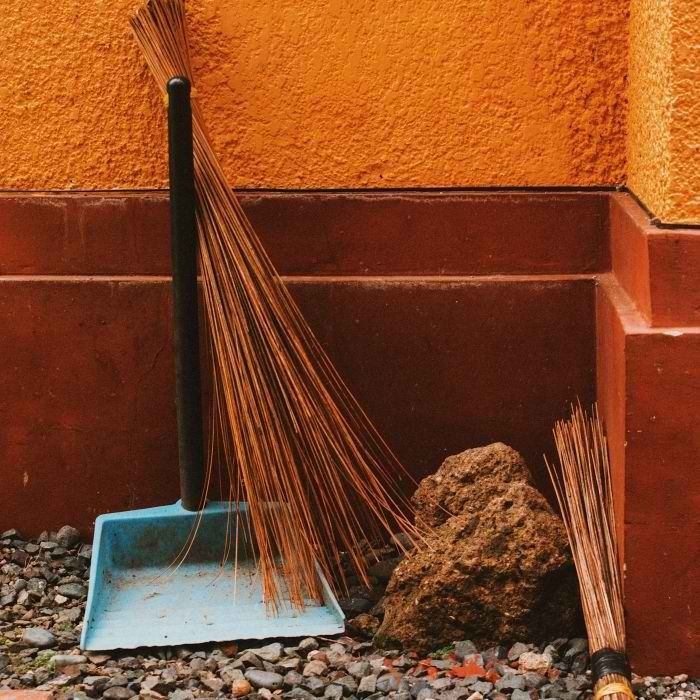Walis tambo, vacuum or robot cleaner? Making a home unfriendly to germs

MANILA, Philippines — Can you think of a time when the need for cleanliness and optimum health was more consistently underscored than during the past two years? Highly unlikely. It took an aggressive virus to make us realize that health really is wealth and that it needs to be among our top priorities.
Reminders have been given time and again: eat well, make sure vitamin C is part of your daily diet, exercise regularly, get adequate sleep. Simply put, being in tiptop shape is the best way for us to keep the upper hand over COVID-19.
Since our home is an extension of ourselves, doesn’t it make sense to put the same importance on keeping the place fresh and clean, one that would be good for our health? We probably don’t realize it, but compared to families in previous decades, we have the advantage of remarkable strides in technology to get the job done more easily and efficiently. House cleaning can now be a breeze.
To demonstrate just how technology can have an incredible impact on keeping our homes clean, let’s think for a moment about a particular cleaning tool that everyone is familiar with.
Broom, broom
Consider the walis tambo, quintessentially Filipino, present in most if not all households in the Philippines. It doesn’t even have an accurate translation in the English language (“soft broom” and “whisk broom” seem to be the most common).
Now think about what this cleaning tool does. Partnered with a dustpan, it is meant to rid the floor of dusts, litter and other forms of dry dirt. Much of such are swept onto the dustpan, then emptied into a trash bin. Unfortunately, the sweeping motion also sends dust and other particles up in the air.
Despite the shortcomings of the broom, it can help a lot when it comes to cleaning. Andrea Lanuza of Abueli Home Concierge, a group that helps families acquire best practices in different aspects of housekeeping, shared her thoughts on house cleaning.
“You still need a walis tambo in a house. But make sure you collect the dust, not just spread it around."
“You still need a walis tambo in a house. But make sure you collect the dust, not just spread it around,” Lanuza points out.
She then recommends taking advantage of technology, particularly for learning what wonderful new things are out there.
Technology is a friend
“When it comes to hacks to clean homes more efficiently, technology is a friend. There are apps for organizing, robot vacuums, dishwashers, water-powered vacuums, and the list of useful things is always growing,” the home expert says. “As with other purchases, keep these things in your ‘cart’ while thinking about whether they’re really needed and while looking for quality reviews.”
Deciding on purchases when it comes to household machines depends on your own circumstances (factors like budget, lifestyle, and priorities, come into play). And while a vacuum cleaner is not among the cleaning equipment in the average Filipino household, the benefits of using one plus the growing concern over pathogens in our surroundings seem to be changing that.
“As with other purchases, keep these things in your ‘cart’ while thinking about whether they’re really needed and while looking for quality reviews.”
“Vacuum cleaners are magnificent,” Lanuza says. “[Brands like] Rainbow and Gruenheim are big investments but with proper care, they will earn their keep and last forever. Eluxgo has lithium battery vacuums that can be taken into the car or shared with kids during chore time.”
A good vacuum cleaner eliminates dirt to a degree that a simple broom cannot – and so much faster. A battery-operated vacuum, while expectedly less powerful, provides ease of movement since plugging into an electrical socket while using it isn’t a concern. A robot vacuum, for its turn, can be tantamount to an extra member on your team to work on the floors (more advanced kinds can be used on other surfaces, too, like shelves) while you do other chores (or eat, or catch up on sleep, or whatever beckons at the moment).
It takes a village
Rechargeable vacuum cleaners? Robot vacuums? Certainly a far cry from the times when the feather duster, coconut husk (“bunot”), cloth rags, and the good old broom were the only items that comprised most households’ cleaning arsenals. Some of the implements remain useful, but then how to know if going the way of technology is a step in the right direction for you? Simple – talk to people about it.
How to know if going the way of technology is a step in the right direction for you? Simple – talk to people about it.
“I think homemakers are really innovative, and they’re willing to share what works,” Lanuza observes. “There’s so much knowledge out there and all it takes is asking.”
She would know. Abueli manages an online forum through which the home concierge can share materials on home care with group members and where knowledge – hacks, tips, recommendations – can be shared between members.
The group had also been conducting face-to-face home manual classes, with young moms comprising a good number of the attendees, till the pandemic brought them to a halt and moved everything online for the time being.
Meanwhile, the quest to make our homes – and inadvertently, our communities – as unattractive to germs as possible ought to be the common goal. Whether yours is a tech-driven approach with super-power cleaning machines, back-to-basics techniques via the walis tambo, traditional mops, and similar implements, or a combination of both methods, let’s take the “health is wealth” adage to heart and extend it to the place we call home.



















